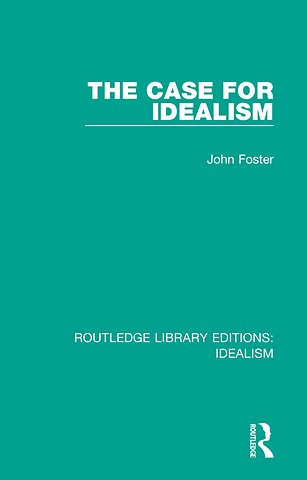Case for Idealism
Gebonden Engels 2021 1e druk 9780367720261Samenvatting
Originally published in 1982, the aim of this book is a controversial one – to refute, by the most rigorous philosophical methods, physical realism and to develop and defend in its place a version of phenomenalism. Physical realism here refers to the thesis that the physical world (or some selected portion of it) is an ingredient of ultimate reality, where ultimate reality is the totality of those entities and facts which are not logically sustained by anything else. Thus, in arguing against physical realism, the author sets out to establish that ultimate reality is wholly non-physical. The crucial elements in this argument are the topic-neutrality of physical description and the relationship between physical geometry and natural law.
The version of phenomenalism advanced by John Foster develops out of this refutation of physical realism. Its central claim is that the physical world is the logical creation of the natural (non-logical) constraints on human sense-experience. This phenomenalist perspective assumes that there is some form of time in which human experience occurs but which is logically prior to the physical world, and Foster explores in detail the nature of this pre-physical time and its relation to time as a framework for physical events.
This book was a major contribution to contemporary philosophical thinking at the time.
Specificaties
Lezersrecensies
Rubrieken
- advisering
- algemeen management
- coaching en trainen
- communicatie en media
- economie
- financieel management
- inkoop en logistiek
- internet en social media
- it-management / ict
- juridisch
- leiderschap
- marketing
- mens en maatschappij
- non-profit
- ondernemen
- organisatiekunde
- personal finance
- personeelsmanagement
- persoonlijke effectiviteit
- projectmanagement
- psychologie
- reclame en verkoop
- strategisch management
- verandermanagement
- werk en loopbaan
